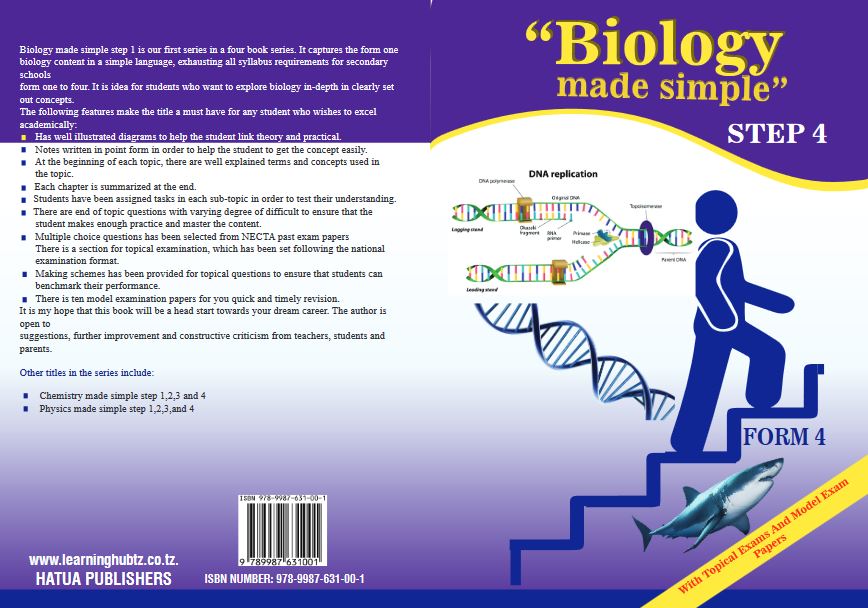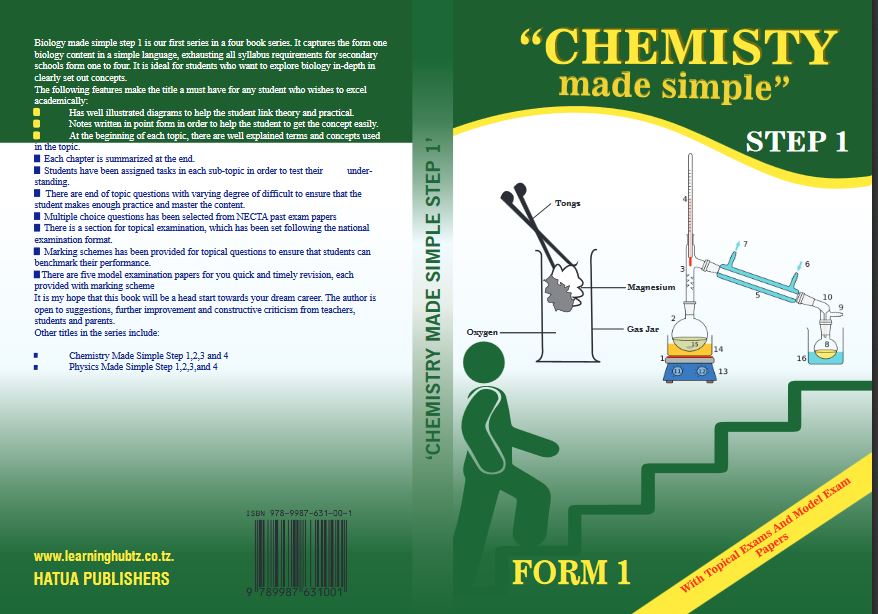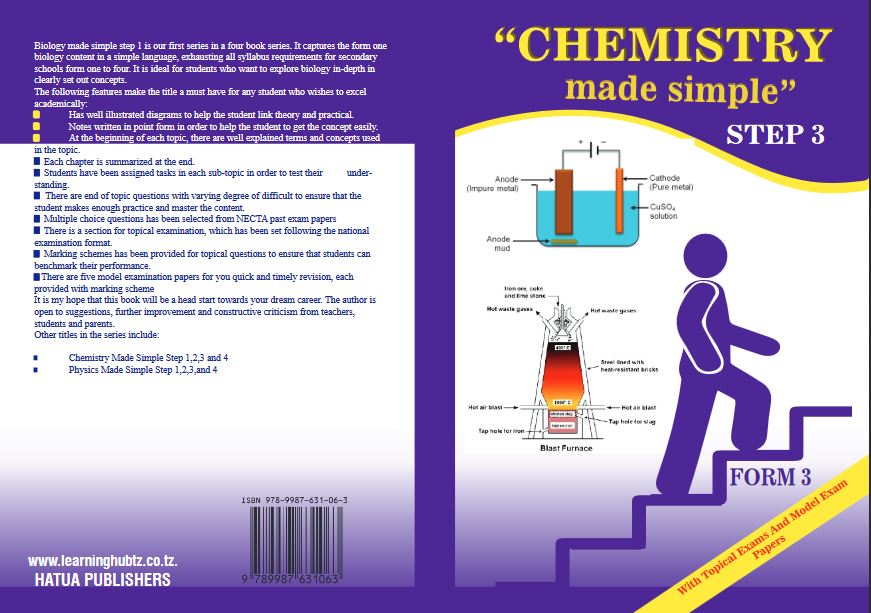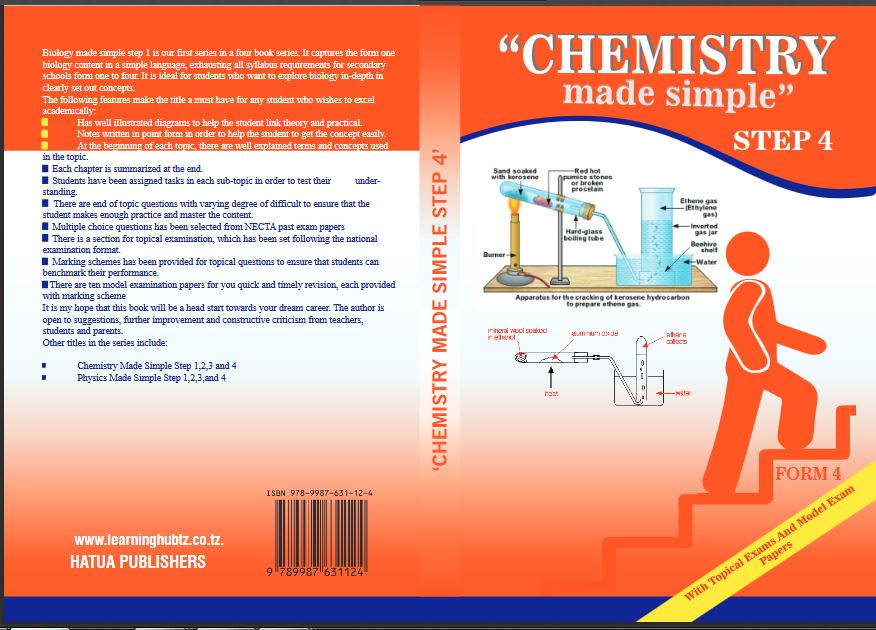THE PRESIDENT’S OFFICE MINISTRY OF EDUCATION, REGIONAL ADMINISTRATION AND LOCAL GOVERNMENT
COMPETENCY BASED SECONDARY EXAMINATION SERIES
BIOLOGY FORM FOUR
TIME: 3 HOURS NOVEMBER 2022
INSTRUCTIONS
- This paper consist of sections A, B and C, with total of fifteen (15) questions.
- Answer all questions in section A and B and two (2) questions from section C of which question 13 is compulsory.
- All drawing must be in pencil.
- Cellular phone and any unauthorized materials are not allowed in examination room.
- Write your examination number on every page of your answer sheets.
SECTION A: (15 MARKS)
Answer ALL questions in this section
1. For each of the item (i) — (x), choose the most correct answer from among the given alternatives and write its letter beside the item number in the answer booklet provided
(i) Which one is the feature of ageing in human beings? ![]()
A. Strong bones
B. Strong muscles
C. Wrinkling of the skin
D. Body increase in size
E. Shorter reaction times
(ii) The next step after experimentation in scientific study is
A. Conclusion
B. Interpretation recording
C. Formulation of hypothesis
D. Observation and data
E. Problem identification
(iii) A biology teacher displayed an organism Q for form four students to observe, and the organism had the following features; one pair of antennae, two pair of wings, compound eyes and three body parts as well as three pairs of jointed legs. The organism Q belongs to class
A. Insect
B. Reptile
C. Insecta
D. Amphibian
E. Arthropoda
(iv) An instrument which is used to estimate population of organisms at a particular place is
A. Quadrant
B. Mounting needle
C. Mirror
D. Sweep net
E. Hand lens
(v) A patient has been diagnosed with high level of blood sugar. Which hormone would you recommend to regulate the victim's sugar?
A. Glucagon
B. Insulin
C. Aldosterone
D. Testosterone
E. Antidiuretic
(vi) What is the main product of anaerobic respiration in plants?
A. Uric acid
B. Lactic acid
C. Water
D. Alcohol
E. Pyruvic acid
(vii) In which environmental condition the loss of water vapour from plants is mostly favourable?
A. Hot and windy day
B. A saturated atmosphere
C. Cool and dry atmosphere
D. Windy day
E. Hot day
(viii) The end products of fat/ lipids after digestion are
A. Amino acids
B. Fatty acids and glycerol
C. Peptides
D. Glucose
E. Amino acids and peptides
(ix) A jelly — like mixture consisting mostly water, dissolved chemical substances and is a site for many chemical reactions in the cell
A. Cell vacuole
B. Cell nucleus
C. Chloroplast
D. Cytoplasm
E. Mitochondria
(x) The interaction between two species in which both organisms benefit is known as
A. Ectoparasite
B. Parasitism
C. Commensalism
D. Mutualism
E. Endoparasite
2. Match the item of diseases in list A with their corresponding terminologies in list B by writing its letter beside the item number
| LIST A | LIST B |
|
|
SECTION B: (60 MARKS)
Answer all questions in this section
3. Kinondoni Municipal Council is facing a problem of over production of waste. As a form four student explain how can you advice the Municipal council to overcome the problem
4. (a) Normally observation is done by using sense organs. How could you observe if a coconut is
(i) Round
(ii) Rough
(iii) Sweet
(iv) Smells nice
(v) Containing water inside
(b) Why the nose cannot be used for hearing?
5. In his tour Mr. Songambele saw a zebra eating grasses, later on he saw a lion chasing a zebra
(a) (i) Identify the feeding relationship
(ii) State the meaning of feeding relationship mentioned in 5 (a) (i) above (b) Construct sensible food web from the given organisms:
(Grass, shrubs, zebra, antelope, giraffe, hyena, lion and bacteria)
6. If you visit any National park in Tanzania you can see many wild animals related to domestic animals such as Buffalo related to cow, wild dogs related to our dogs at home and leopard related a cat, someone can suggest blat they may be originated from tie same ancestors
(a) Name the evidence frat have been used to give that suggestion
(b) Name other three (3) evidences of organic evolution
7. In animals, not every mating leads to fertilization. Give four factors in males which account for this problem
8. (a) One of the reasons as to why group living things is to make easy the study of them. Give other three (3) reasons
(b) Explain why viruses are considered as both living and non - living things
9. (a) Give reason(s) why
(i) Camels can stay longer without drinking water
(ii)It is healthier to breathe through your nose instead of our mouth
(b)Identify the components of glomerulus filtrate (any four)
10.Despite the fact that HIV can be transmitted through many ways, most of members of the society think that anyone with HIV/AIDS is adulterous. As a member of TACAIDS, how could you educate those members of a particular society. (Any three points)
11.(a) Differentiate between
(i) Codominance and incomplete dominance
(ii) Continuous and discontinuous variation
(iii)Phenotype and genotype
(b)The knowledge of genetics is very applicable in agricultural activities. Explain
12.In an experiment, three cylinders (5cm) were cut from a fresh potato. The cylinders were then placed in different sugar solutions as shown in the diagrams below; After four hours the potato cylinders were removed and measured
![]()
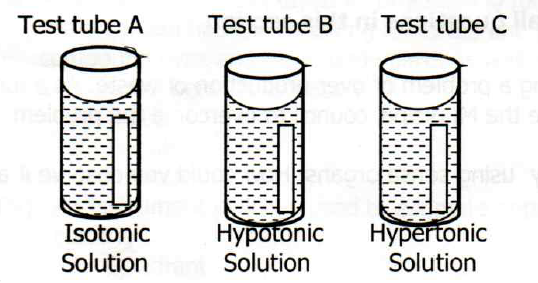
(a)With a reason, suggest the form (method) of transport that is taking place in this experiment
(b) Which potato cylinder would you expect to be the shortest after four hours?
(c)The potato cylinder in test tube A remain unchanged in length after four hours? Explain why this happened
SECTION C: (25 MARKS)
Answer two (2) questions from this section. Question 13 is compulsory
13.Most of Tanzanian societies in rural areas where there is not electricity face the problem of food spoilage because they do not have the knowledge of preventing their food from going bad. As a form four student explain how will you advice them to solve that problem. (Any six (6) points)
14.The body of human being is made up of framework of interconnected bones and cartilage which plays crucial role to the body. Justify the statement (four (4) points)
15.Youth in Tanzania engage themselves in risky situation, behaviours and practices that may put diem in high chance of getting STIs, STDs and HIV/AIDS. With vivid examples from the society explain how will they able to move out from the problem. (Any four (4) points)
FORM FOUR BIOLOGY EXAM SERIES 128
FORM FOUR BIOLOGY EXAM SERIES 128
Hub App
 For Call,Sms&WhatsApp: 255769929722 / 255754805256
For Call,Sms&WhatsApp: 255769929722 / 255754805256
 For Call,Sms&WhatsApp: 255769929722 / 255754805256
For Call,Sms&WhatsApp: 255769929722 / 255754805256



